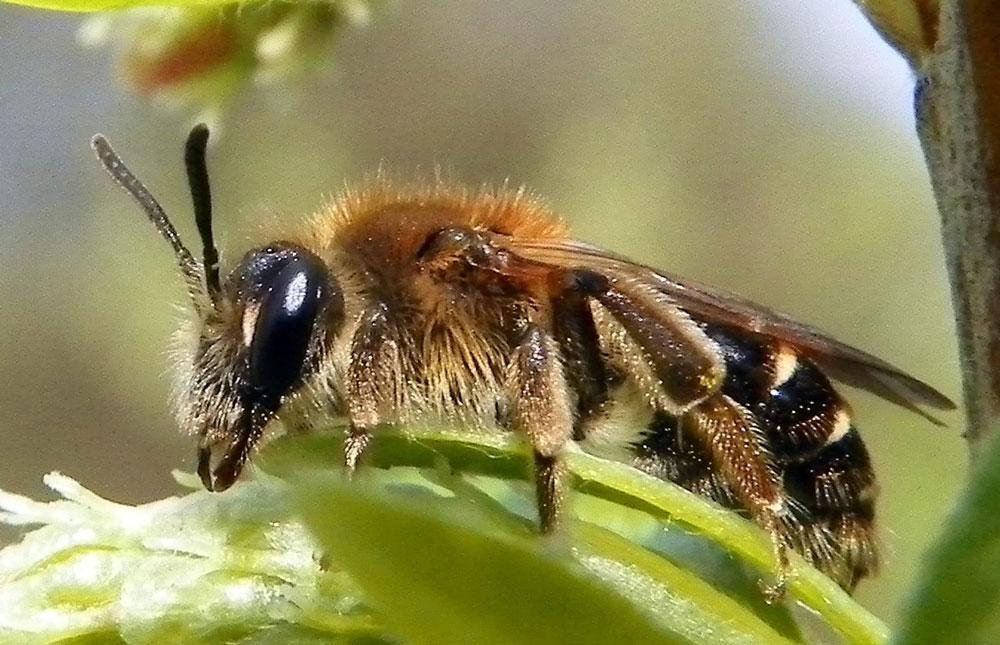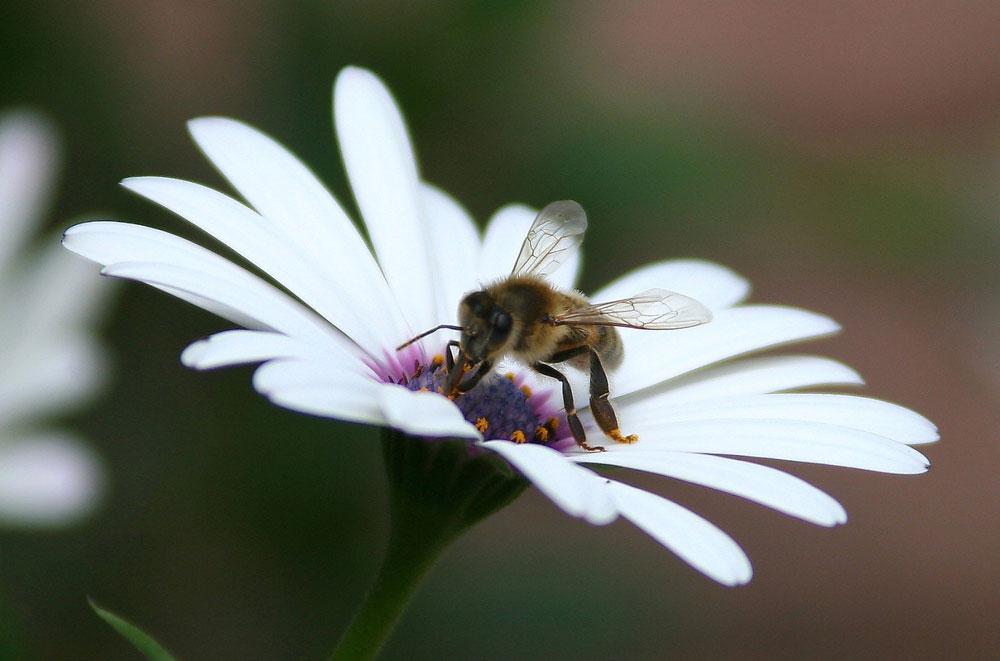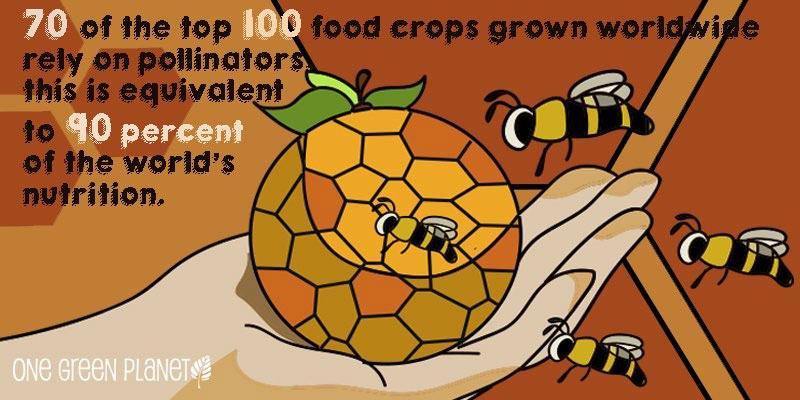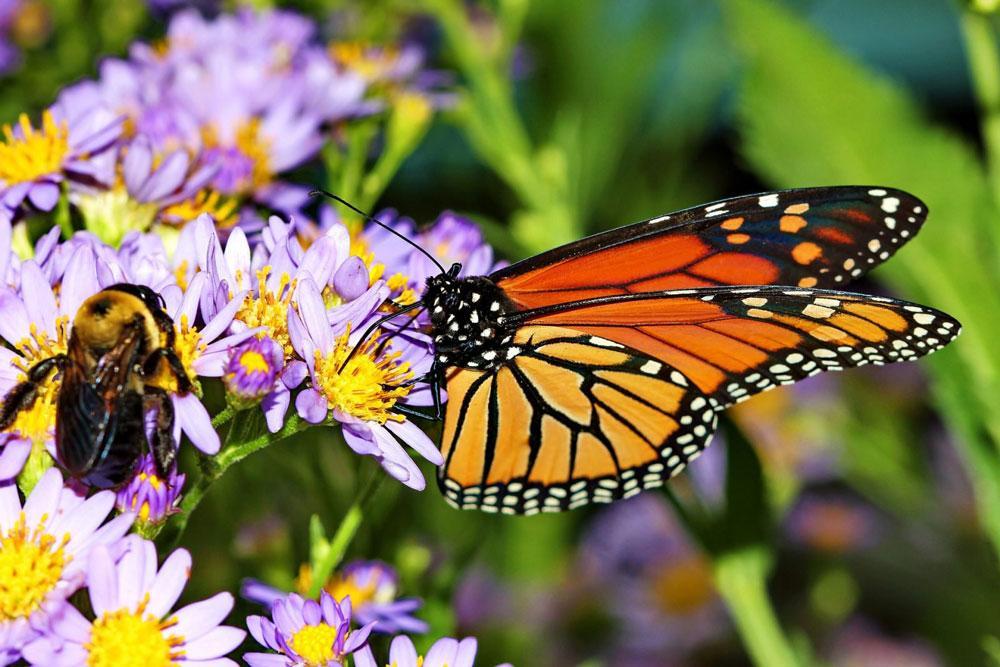Without Bees our world will be silent –What YOU Can Do to Help

Humans often overlook the vitally important role that bees play in our lives. Bees are seen as pests or nuisances that are too be avoided lest one land on your arm and sting you!
Each species, no matter how small, plays an important role in the survival of our planet’s ecosystems. And each time a species disappears due to extinction, or we see their populations rapidly decline, it impacts those ecosystems in a way that cannot be reversed
Many of us are accustomed to seeing bees fly around our backyards on summer evenings, but what we may not understand is just how important these creatures are to our continued existence on this planet. Bees are responsible for pollinating approximately 250,000 plant species. However, we rarely consider the bigger picture and recognize that without bees, some of the foods we eat every day would disappear. Every third bite of food we take is made possible thanks to our pollinator friends.

Why are Bees at Risk?
There are a variety of threats facing the bee population, including habitat loss and climate change, but the most pressing threat to bees is pesticides. Ironically, humans spray pesticides on crops to protect them from pests that could harm their productivity, but these chemicals are also responsible for killing bees which make many of these same crops possible.
Neonicotinoids are some of the most harmful pesticides to bees as they function by attacking the insect’s nervous system which can lead to instantaneous death, but also bees that do survive exposure can become disoriented and forget how to find their way back to the hive – hence, Colony Collapse Disorder.
Plant and animal and humans species so are dependent on the work of bees, that a world without them would increasingly come to resemble a silent, dead world.
It is vitally important that we all take action in our everyday life to help bees, as our own survival could depend on it.
The plight of the honey bee is not one that should be taken lightly. In the past few decades, the population of bees has declined steadily by 30 per cent each year. At this rate, the days of the bee are becoming … well, literally numbered.
Researchers have grappled with understanding what exactly is causing the decline in the bee population and at the same time, we have been forced to face the reality of what the loss of the bee means for the large, global ecosystem.
You see, like many other species, the bee plays a vital role in keeping the balance between other species and their environment. In the case of bees and humans, these little insects are largely responsible for regulating our food supply.
Why do Humans Need Bees?

A new study published in Nature Communications found that just two per cent of wild bee species contributes 80 per cent of the crop pollination visits observed globally. This means that if this small percentage of bees disappears … then 80 per cent of our agricultural system will collapse.
Seventy of the top 100 food crops grown worldwide rely on pollinators, this is equivalent to 90 per cent of the world’s nutrition. It might sound unbelievable, but without bees, we can say goodbye to food such as apples, almonds, oranges and avocados. Considering that around 850 million people across the world are currently suffering from lack of food, coupled with the fact that the global population is set to balloon up to nine billion by 2050, we’re going to need all bees on deck if we hope to avoid mass food scarcity.

How Bees Contribute to the Ecosystem.
Bees are not only extremely important for humans, but also for entire ecosystems to function. As we know, bees allow plants to reproduce through pollination. These plants contribute to the food system by feeding animals – aside from humans – such as birds and insects. If the food source for these animals was diminished or lost completely, it would cause the entire food chain to suffer.
Additionally, about 80 per cent of flower plants depends on pollination. If this process stops, not only do we have the potential to lose beautiful plants, but also food for us, birds, squirrels and all of the other animals that depend on plants for food.
How Can You Help?
There are many ways you can help bees in your own community, such as:
Here are just a few steps you can take:
- Plant bee-friendly plants in your garden.
- Support organic farmers who do not use chemicals on their crops.
- Spread the word about the importance of bees and their declining population!
- Buy local, organic produce (grown without the pesticides that harm bees).
- If you have a backyard, one powerful action you can take is to start growing plants that appeal to bees, such as lavender, sage, tomatoes, pumpkin, and mint, among many others.
- Avoid the use of harmful pesticides while gardening.
- Leave small containers of water for bees to drink from when they visit your backyard – bees get thirsty too!
- • Support amateur beekeepers and beekeeping organizations whose primary aim is to conserve bees, rather than profit from them.
The bees do so much for us, acting to help protect them is the very least we can do!
Source
One Green Planet
WWW
Call us and schedule your listing today! Contact Us
Copyright © 2025 Hermanus Online Magazine. Web Development by Jaydee media.
